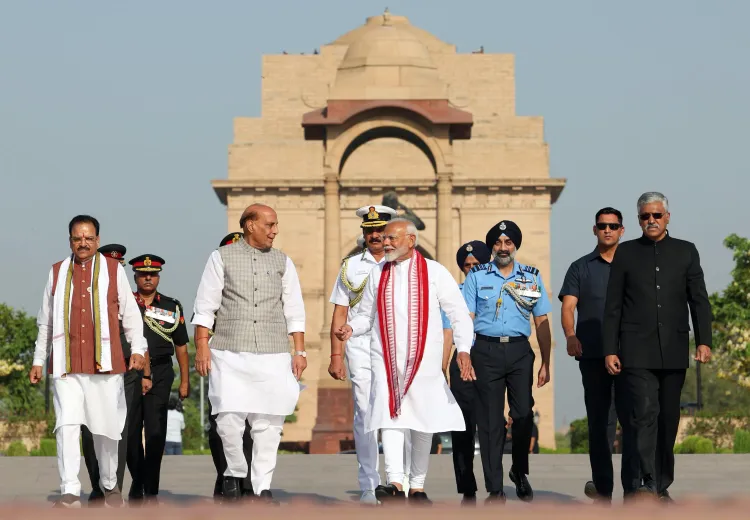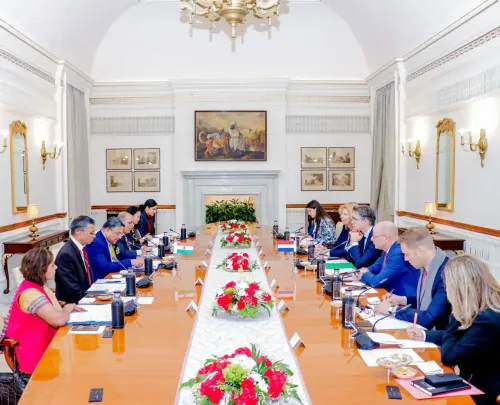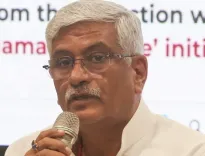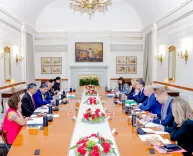Ceasefire on India's terms? How Pakistan was forced on backfoot during Operation Sindoor

Synopsis
Key Takeaways
- Operation Sindoor demonstrated India's military capabilities.
- The ceasefire was reached on New Delhi's terms.
- Pakistan's military infrastructure faced significant damage.
- Future terror acts will be treated as acts of war.
- Diplomatic engagement remained crucial during military operations.
New Delhi, May 10 (NationPress) The decisive retaliatory actions executed by the Indian Armed Forces during Operation Sindoor in recent days, showcasing the nation's escalating military capabilities, were pivotal in leading both India and Pakistan to declare a ceasefire late Saturday afternoon, which, according to sources, was firmly established on New Delhi's terms.
The ceasefire was enacted at 5 PM on Saturday, following India's destruction of eight Pakistani air bases, the elimination of over 100 high-value terrorists, and substantial damage to Pakistan’s terror infrastructure and military support assets.
Importantly, this ceasefire did not arise from any negotiated agreement or third-party mediation, but rather as a result of Pakistan's inability to continue escalating tensions, sources indicate.
"In recent days, it has been evident that Pakistan has endured severe and unsustainable losses after its unprovoked attack on our installations. The nation has faced setbacks both on land and in the air. There has been significant damage to vital Pakistani air bases like Skardu, Sargodha, Jacobabad, and Bholari. Additionally, the loss of air defense systems and radars has rendered the defense of Pakistani airspace untenable," stated Wing Commander Vyomika Singh.
The communication from Pakistan's Director General of Military Operations (DGMO) to his Indian counterpart was a direct result of India's display of strength and determination. New Delhi's strategic shift — declaring that any future act of terrorism will be considered an "act of war" — has redefined engagement protocols, acknowledged by Washington, leaving Pakistan with minimal options.
It has also been clarified that this announcement, made without any preconditions, pertains solely to the cessation of hostilities, not impacting New Delhi’s decisions to suspend the Indus Waters Treaty (IWT), close the Attari Integrated Check Post in Punjab, or cancel the SAARC Visa Exemption Scheme for Pakistani nationals.
India agreed to halt hostilities only after achieving a dominant position. The understanding, reached through a direct DGMO-level dialogue, specifically pertains to stopping military actions across land, air, and sea. No broader negotiations or issues were discussed or agreed upon during the initial engagement, and no political-level discussions were included in this ceasefire, sources explained.
Nonetheless, diplomatic engagement on the global stage was not absent. In a significant development, US Secretary of State and Vice President Vance revealed that Washington had conducted intensive discussions with senior officials on both sides, including External Affairs Minister (EAM) S. Jaishankar, National Security Advisor (NSA) Ajit Doval, and Pakistan's Army Chief Asim Munir. The US confirmed that it had urged restraint and notably pressed Pakistan to de-escalate.
Through Operation Sindoor, India has altered the strategic landscape, demonstrating that it will no longer tolerate terrorism as a geographical cost. It retaliates with precision, establishes rules of engagement, and enforces de-escalation only after asserting deterrence. This 'ceasefire' should not be misconstrued as a truce — it is a declaration of control.
As EAM Jaishankar remarked following the agreement on cessation of military actions, "India has consistently upheld a steadfast and uncompromising position against terrorism in all its forms and manifestations. This commitment will persist."










